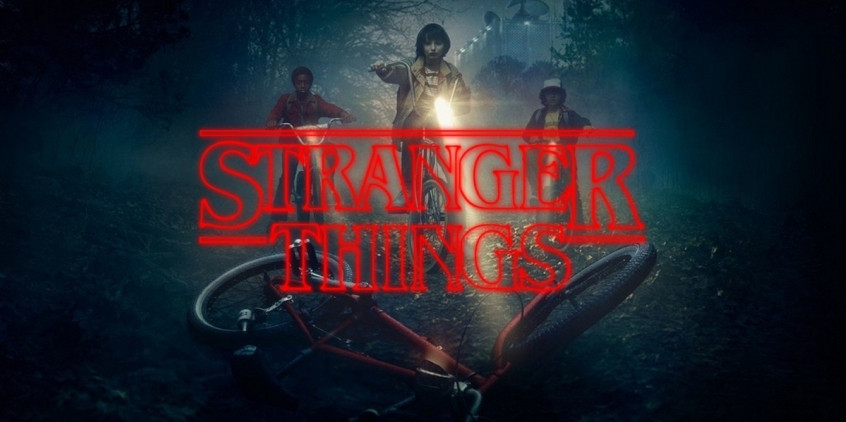
Are you excited for Halloween? If you're a Christian, you might not be. Perhaps you're wary of the occult and dark, un-Christian practices, or afraid of the way the season seems to revel in fear and celebrate death.
Writing for Christian Today, James Cary yesterday lamented the increasingly bloody and violent season: "Hallowe'en has switched from spookiness, which is tiresome enough, to blood-spattered, internal-organ-removing horror." Cary has little time for this festival, and I understand his horror at Halloween. He says that we trivialise spiritual forces of evil at our peril, and with that I agree. But is there a danger that instead of trivialising forces of evil, we just ignore them?
One might despair at the weird world of dark arts and paranormal activity, but popular culture can't get enough of it. Obviously there's the prolific genre of horror movies, the impressive array of TV and films that involve vampires or zombies, and 'ghost stories' have been around for centuries. This summer saw the surprise hit of Netflix's sci-fi/horror adventure Stranger Things – a brilliantly told story which was rich with monsters, supernatural powers, and a world that we can't see.
Meanwhile Marvel Studios has just released its latest film, Doctor Strange, a mind-bending super-hero tale that involves the world of magic and mysticism in a way that the genre hasn't seen before. As Martin Saunders wrote, it's a film that opens up the world of Good, Evil and the bigger picture in a way that Christians could learn a lot from.
Of course some of culture's 'horror' is just silly, or often indulgently and unhelpfully dark. The Killer Clown craze, for example. Yet why this preoccupation with the strange? Why is it that people find these tales of the supernatural so compelling?
Rather than being silly escapism, what if these tales of magic and mystery are an attempt to truly understand the world?
The world is weird, dark, and scary, and people want a story that explains that. And though we might try and ignore it sometimes, the Bible is actually full of the weird, the dark, and the scary.
There's a zombie-like revival on Good Friday, and it's not really clear what that was all about. Cary's article points to other dark denizens in Scripture, like the witch of Endor, the angel of death, and the many demon-possessed.
There's a prince of darkness, who's real and powerful. He may be ultimately defeated, but we're told that he's still around for now, and not to be ignored. There's a spiritual battle taking place, and Jesus went to the cross not just to forgive sin, but to defeat 'the Powers' that we can't see. And of course if you're lacking 'weird' in your quiet times, there's always the book of Revelation.
The Bible doesn't simply present simple, clean stories where light easily quashes darkness, and goodness always prevails. Scripture is full of blood, horror, and moral ambiguity. Ian Paul wrote recently on his blog about the 'Texts of Terror' – texts of Scripture which present particularly challenging stories, and that often aren't preached on.
Paul considers Judges 19, the story of the dismembered concubine. It is a harrowing tale of sexual coercion and violence. It certainly isn't celebrated by Scripture, but this dark story remains part of God's word to his people. Paul quotes biblical scholar Phyllis Trible, who says of the text: "To hear this story is to inhabit a world of unrelenting terror that refuses to let us pass by on the other side."
Paul adds: "The challenge to the local church is whether we will, indeed, 'inhabit' this world, even for a short time, rather than 'passing by'."
Do we 'pass by' on the weirdness of Scripture, or the weirdness of the world? There's no reason to, apart from wanting to feel a little better about life. We should let Scripture unsettle us, and we should be comforted that the same darkness we see in horror films, depressing world news and our own daily lives is something that God acknowledges and confronts.
Of course we must not dwell in darkness, nor delight in death – we must discern what is good and true, and live as children of the light, full of faith, hope and love.
While we do that, lets not be afraid when culture talks about magic, mystery, and Stranger Things. We should watch them, think about them, talk about them.
We might think Halloween is macabre, but Christians wear crosses around their necks. We celebrate a horrific symbol of violence and oppression. Why are we not bothered by this? It is because we know that this strange symbol is the means of salvation. We know that hope is found amidst horror.
It is because we know that the darkness is not to be avoided. It is to be redeemed.
Have a Happy Halloween.













